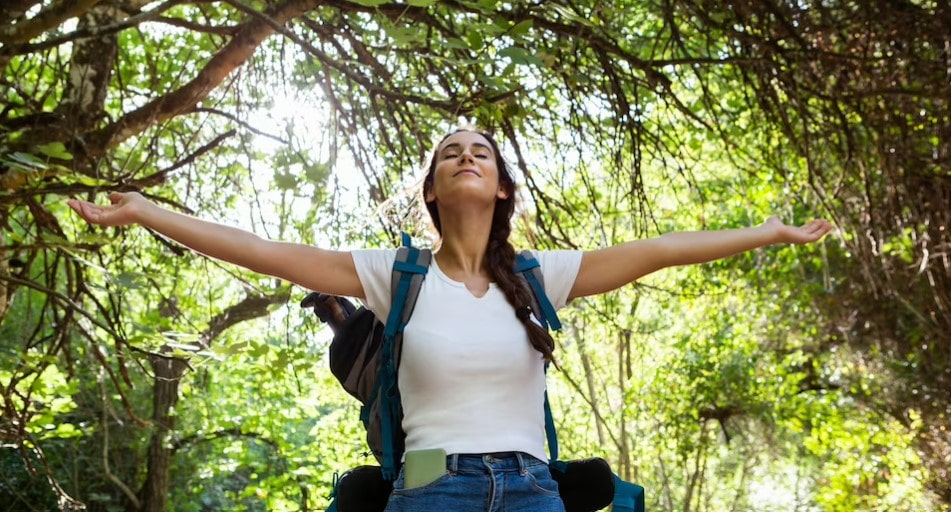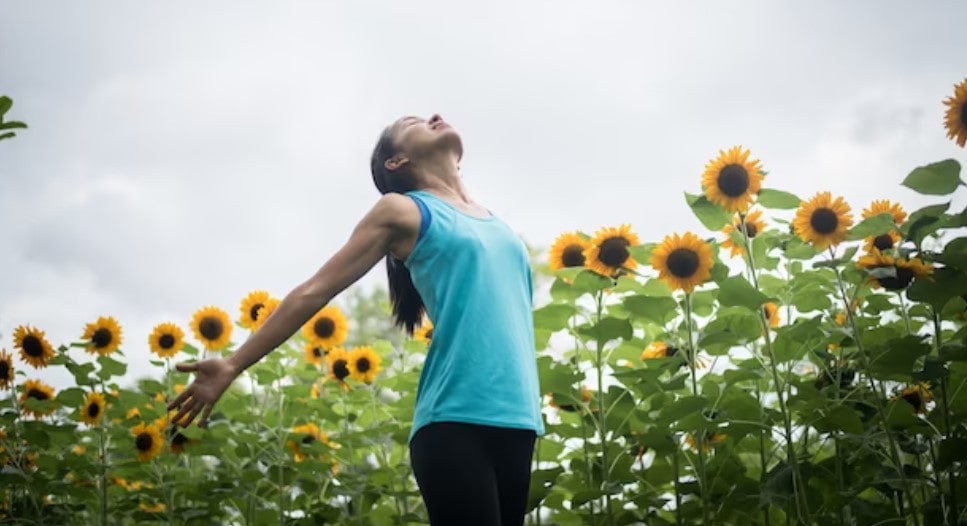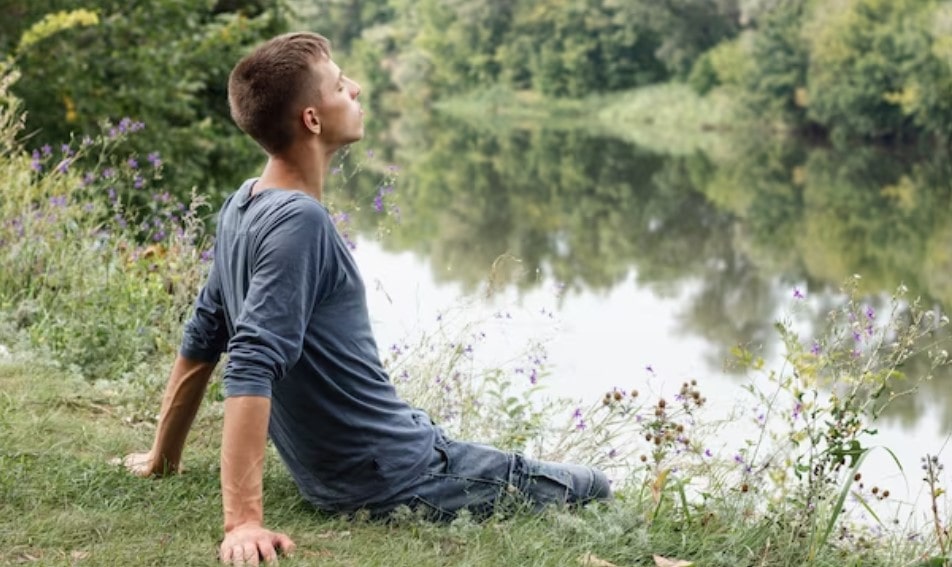Do you ever feel stressed, anxious, or overwhelmed? If so, you’re not alone. Mental health challenges are increasingly common in today’s fast-paced and digitally connected world. Fortunately, one simple but powerful remedy is available to all of us: spending time in nature.
Research shows that exposure to natural environments has numerous benefits for our mental well-being. From reducing stress and anxiety to boosting mood and creativity, nature has a unique ability to heal and restore us. In this post, we’ll explore the science behind the benefits of nature for mental health, the impact of nature on our well-being, and practical ways to incorporate nature into our daily lives. Whether you’re a nature lover or a city dweller, this post will inspire you to reap the mental health benefits of spending time in nature.
The Science Behind the Benefits of Nature for Mental Health

The scientific evidence for the mental health benefits of spending time in nature is strong and growing. A recent meta-analysis of 143 studies found that exposure to natural environments is associated with a wide range of positive outcomes for mental health, including reduced symptoms of depression, anxiety, and stress (Bowler et al., 2010).
One reason for this may be that nature has a calming effect on the nervous system. Exposure to natural environments has been shown to lower levels of the stress hormone cortisol, reduce blood pressure and heart rate, and improve immune function (Mao et al., 2019).
In addition to reducing stress, spending time in nature can also boost mood and promote feelings of well-being. A study of over 20,000 participants found that those who spent more time in nature reported higher levels of life satisfaction and lower levels of psychological distress (White et al., 2019). Other research has shown that nature exposure can increase positive emotions, such as joy and awe, and decrease negative emotions, such as anger and sadness (Kellert, 2005).
But the benefits of nature go beyond just stress reduction and mood improvement. Exposure to natural environments has also been linked to increased cognitive function and creativity. A study of university students found that those who went for a walk in nature scored higher on a test of attention and working memory than those who walked in an urban environment (Berman et al., 2008). Another study found that participants who spent time in nature came up with more creative ideas for problem-solving tasks than those who stayed indoors (Atchley et al., 2012).

The Impact of Nature on Mental Health
The impact of spending time in nature on mental health can be profound. Being outdoors in natural environments can provide a sense of calm and tranquility that is hard to replicate indoors. This can be especially beneficial for those who experience symptoms of anxiety or depression.
For example, one study found that people who went for a 90-minute walk in a natural environment reported lower levels of rumination (repetitive negative thinking) and reduced neural activity in brain regions associated with mental illness compared to those who walked in an urban environment (Bratman et al., 2015).
In addition, spending time in nature can help us feel more connected to something larger than ourselves. This can be a source of comfort and perspective when we are feeling overwhelmed by our own problems or stressors. Being in nature can also provide opportunities for physical activity, social connection, and fun, all of which are important for maintaining good mental health.
For example, taking a hike with friends or family in a beautiful natural setting can provide a sense of adventure and camaraderie, while also giving us the benefits of exercise and exposure to natural beauty. Gardening or spending time in a park can offer a sense of accomplishment and purpose, as well as the satisfaction of nurturing and caring for living things.

How to Incorporate Nature into Your Daily Life
Here are some ideas on how to incorporate nature into your daily life:
Take a walk: One of the easiest ways to get outside and enjoy nature is to take a walk. Whether it’s a stroll around your neighborhood or a hike on a local trail, walking is a great way to get some fresh air and exercise while enjoying the natural world.
Garden: Even if you don’t have a large yard or outdoor space, you can still enjoy gardening. Consider planting some herbs or flowers in pots on a windowsill or balcony. Not only will you be able to enjoy the beauty of nature, but you’ll also be able to taste the fruits of your labor!
Have a picnic: Take your meals outside! Find a local park or green space and pack a picnic basket. Enjoy your lunch or dinner in the fresh air and soak up the beauty of your surroundings.
Take up outdoor sports: Try taking up a new outdoor sport, such as cycling, kayaking, or rock climbing. Not only will you be getting exercise and fresh air, but you’ll also be able to challenge yourself and explore new places.

Practice mindfulness in nature: Take some time to simply sit and observe the natural world around you. Find a quiet spot in a park or garden and focus on your breath while taking in the sights, sounds, and smells of the natural world.
These are just a few ideas to get you started. The key is to find ways to incorporate nature into your daily routine in a way that works for you. By making time for nature, you’ll be able to reap the many benefits it has to offer for your mental and physical health.
Nature-Based Therapies for Mental Health
Nature-based therapies, such as ecotherapy and wilderness therapy, have gained popularity in recent years as alternative treatments for mental health conditions. These therapies involve incorporating nature and the outdoors into the treatment process. Here are some insights on how they can be used to treat mental health conditions:

Ecotherapy: Ecotherapy, also known as nature therapy, involves using nature as a therapeutic tool. This therapy aims to improve mental health and well-being by connecting individuals with nature. It can involve activities such as gardening, hiking, or simply spending time in natural settings. Ecotherapy has been shown to reduce stress, anxiety, and depression, as well as improve self-esteem and overall quality of life.
Wilderness therapy: Wilderness therapy involves immersive outdoor experiences in natural settings, typically involving activities such as backpacking, camping, and outdoor adventure sports. This therapy aims to help individuals develop resilience, coping skills, and self-confidence by challenging themselves in a natural setting. Wilderness therapy has been shown to be effective in treating conditions such as substance abuse, depression, and anxiety.
Both ecotherapy and wilderness therapy have shown promising results in improving mental health and wellbeing. These therapies aim to help individuals reconnect with nature and themselves in a natural setting, providing a unique and holistic approach to mental health treatment.
Conclusion
In conclusion, spending time in nature has numerous benefits for our mental health and well-being. Scientific research has shown that spending time in natural environments can reduce stress, improve mood, increase focus and creativity, and have a positive impact on our overall mental health. It is important to make time to incorporate nature into our daily lives, whether it be through simple activities like taking a walk or having a picnic, or through more immersive experiences like ecotherapy or wilderness therapy.
By connecting with nature, we can find a sense of peace and clarity that is often difficult to find in our modern, fast-paced lives. As we continue to learn more about the benefits of spending time in nature, it is important that we prioritize nature and incorporate it into our daily routines. By doing so, we can improve our mental health and overall quality of life. So, let’s take a step outside, breathe in the fresh air, and appreciate the beauty and serenity of nature.


